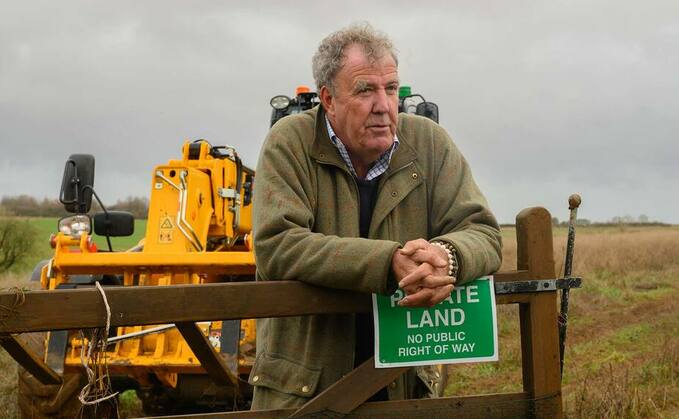
Swapping the fast lane for tramlines, motoring journalist turned arable farmer Jeremy Clarkson tells Olivia Midgley how he is getting to grips with rural life. WHILE some farmers in their 60s may be...

Swapping the fast lane for tramlines, motoring journalist turned arable farmer Jeremy Clarkson tells Olivia Midgley how he is getting to grips with rural life. WHILE some farmers in their 60s may be...

NEW CLAYDON 7.5M HARROW

NEW CLAYDON MARKER ARM KIT K-M3E-N01

NEW CLAYDON MISC DRILL ACCS
What was it like to work on Our Dream Farm with Matt Baker? Agri-food consultant Caroline Dawson reveals all
Series two of Jimmy and Shivi's Farmhouse Breakfast returns on Easter Saturday. Jimmy and Shivi answer questions on what to expect ahead of the new series
Amazon Prime Video reveals what fans can expect from the new series of Jeremy Clarkson's popular farming show